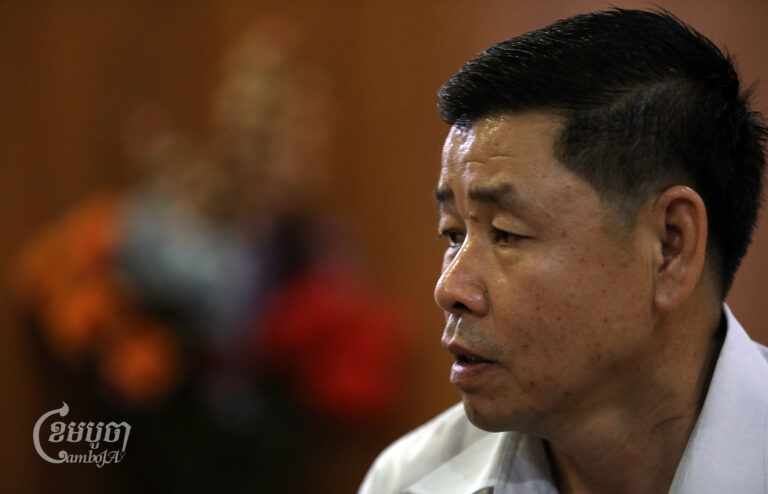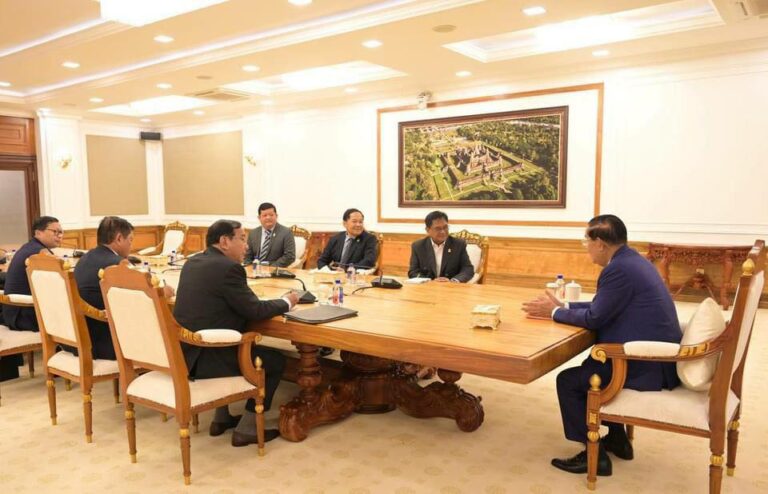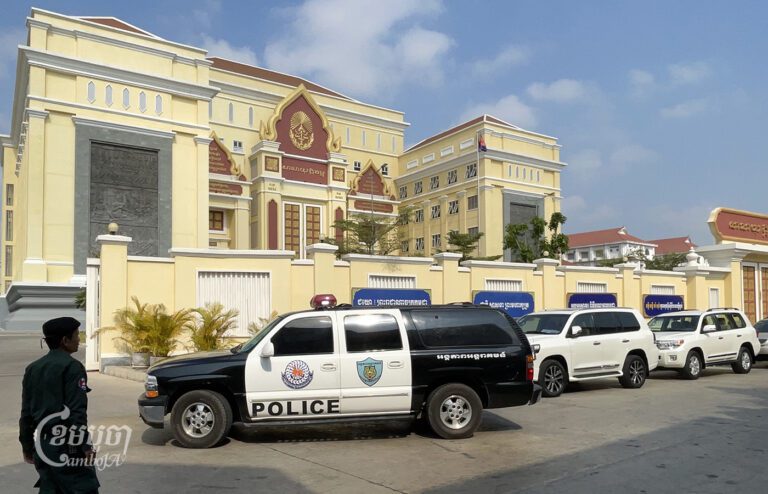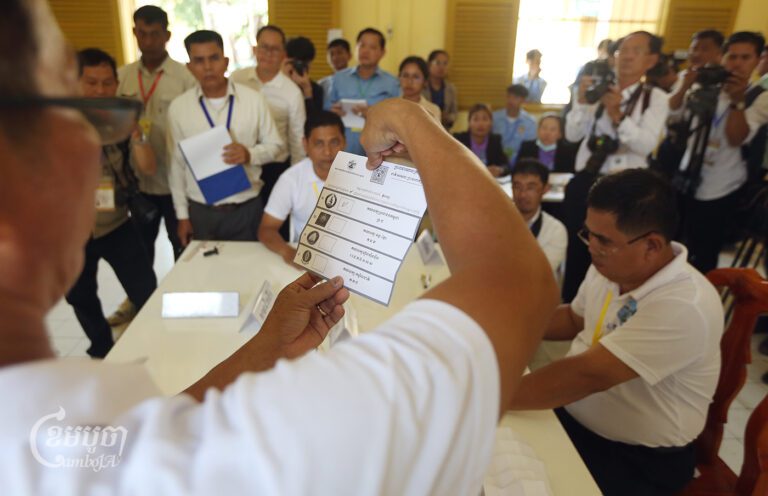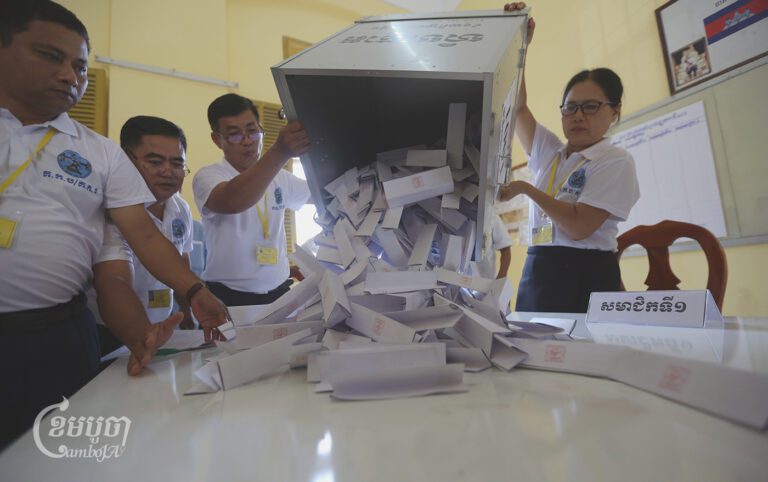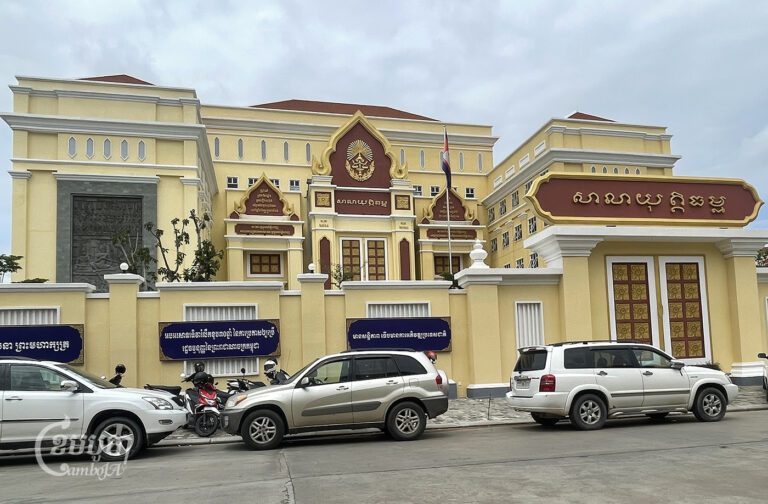In a Wednesday press conference held online, representatives of roughly 60 civil society groups urged the government to release prisoners of conscience and work to establish political neutrality among the judiciary, military and National Election Committee ahead of the 2022 commune council polls.
Yong Kim Eng, president of the People Center for Development and Peace, said at the conference that civil society groups want to see a healty political environment in which all relevant parties may participate. As a key part of that, he and other leaders called for the release of detainees who are believed to have been targeted with politically motivated charges.
“The important thing is that civil society groups want to see a political negotiation, tolerating politicians as well as pardoning and releasing party members and activists who were politically motivated,” he said.
Though he didn’t mention the party by name, his comments seemingly referred to the former opposition CNRP, which was officially outlawed in 2017.
Justice Ministry spokesman Chin Malin told CamboJA that the country doesn’t have political prisoners. Instead, he argued, the state has imprisoned politicians who committed felony crimes.
“So, when you have violated the law, how could you not be equal before the law like others? It is impossible,” he said. “Those people cannot have equality before law.”
These claims of judicial neutrality have not convinced many in civil society, who have continuously called for the release of the imprisoned opposition members.
In 2013, the opposition CNRP pushed the ruling party to near defeat in that year’s national election. Four years later, in the 2017 commune elections, the CNRP won more than 5,000 commune councilors, landing in close range of the 6,000-plus won by the ruling CPP.
But the mounting success of the opposition was swiftly cut off that same year by a violent dissolution carried out after a controversial Supreme Court ruling. Shortly before that, police had arrested CNRP leader Kem Sokha on treason charges widely believed to have been politically motivated. With no viable opposition remaining, the CPP swept all 125 National Assembly seats in the 2018 election.
Following the party’s dissolution, 118 opposition officials were banned from politics for five years. Of that number, 24 have since had their political rights restored upon request.
Pa Chanroeurn, president of the Cambodian Institute for Democracy, said that a guarantee of civil liberties would bring the country in line with its own constitution, which states clearly that the government is to be a “liberal, multi-party democracy”.
“At home, we do not have a mature democracy for the country. In order for Cambodia to be a mature democracy, it must have the participation of all parties, including political parties, civil society organizations and the general public,” he said.
Kol Panha, advisor at the Committee for Free and Fair Elections in Cambodia (Comfrel), said national political reconciliation is very important, noting Cambodia had done the same in 1993 and 1998 to allow for the electoral participation of different political groups.
“We believe the upcoming commune council election will be better if there is a restoration,” Panha said, pointing to the dissolution of the CNRP, which was forced to revoke its communal seats as its members and activists were imprisoned.
He called on the government to have a political dialogue between parties, noting the UNTAC-organized election of 1993 required the release of all political prisoners who then had the right to stand for election.
However, CPP spokesman Sok Eysan refused to consider these requests from civil society, especially the release of CNRP members.
“Those civil society groups have a political agenda,” Eysan said, characterizing their requests as an attack on the government. He then claimed the groups served foreigners’ interests.
Eysan said Cambodia already has a good political environment to uphold the principles of multi-party democracy and pointed to the involvement of the Supreme Court in dissolving the political opposition as reason why prisoners could not be released. Still, he said he could accept those former opposition members who requested an official rehabilitation to be allowed to participate in politics once again.
He also rejected claims the courts and armed forces were politically motivated organizations, stating that their members are Cambodian citizens with individual rights to participate in politics as long as they did so outside of their working hours while not in uniform.
Som Sovanna, a former deputy commune chief and CNRP member from Pursat city’s Rolork Sor commune, supported the call from civil society to release prisoners of conscience.
She also said she believed new political parties won’t be able to contest the ruling CPP in the upcoming commune council elections because the public still has its hopes set on the CNRP.
“I think it is difficult because people do not believe [the new political parties],” she said.
“One more reason that people do not believe, is because even if the opposition won, they can do nothing,” Sovanna said. “And if the next party won, it would be dissolved like the previous party.”



